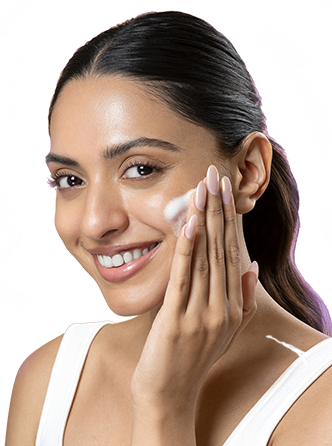Hello folks, this is the second article in our series on sun protection. The first one covered the basics of sun protection -
if you missed reading it. Today's short post explains the difference between a sunscreen or a sun block - and which one to go for.
First things first, why do you need sun protection? Most people would say it's to guard against the skin turning dark, but skin darkening is just a
symptom of the damage caused to the skin by the sun. Here's the list of things going wrong with the skin, when there is heavy sun exposure:
-
Redness: And in extreme cases, sun burns
-
Premature ageing: the UV rays in sun damage essential skin proteins (elastins) that keep the skin taut and young looking
-
Dark spots and uneven skin tone: the skin reacts to the sun by producing the darkening pigment, melanin, and irregular pigmentation leads to these changes.
-
Oxidative damage: Sunlight is a great catalyst for the oxidative changes that can make skin look tired, weak and aged.
-
Cancers: It is well known that UV rays in sun cause skin cancers. While less of an issue with dark-skinned population, this cannot be ignored.
So, whether it is sun block or sunscreens, you need them to protect yourself from UV rays.
What are sunscreens?
Sunscreens are usually chemical compounds, which after penetrating your skin, stay there and absorb the UV rays of sun, in a harmless way. So the process of protecting your skin is chemical in this case. Someone can be wearing sunscreen and you wouldn't be able to tell (if it's a well-made one, that is).
And sun blocks?
As the name implies, sun blocks physically "block" the sun's rays from reaching your skin. Yes - those white creams you so conspicuously see on people especially in sports and while swimming - that's sun block. Typically made of Zinc Oxide and Titanium Dioxide, they have three distinct advantages over sunscreens:
- They are visually apparent, and so, you can easily notice if you are being protected are not. Particularly useful if you are sweating or in water.
- They offer protection against both UVA and UVB rays. Most chemical sunscreens protect against UVB only, and need additional help (from other chemical sunscreens or physical sunblocks) to complete the protection.
- They are inherently safer than chemical sunscreens as they do not penetrate the skin. While most chemical sunscreens are safe, some chemical sunscreens like PABA (which we do not use in our products), are known allergens.
Should I choose sunscreen or sun block?
As long as you are getting the protection you want - SPF 20 to SPF 30) is good enough,
see why in our earlier post - you can choose either. Now obviously sun blocks are going to leave you looking a little, shall we say, white - and most people tend to choose them in cases where it is ok to look that way (during outdoor activities, for example). For everyday use - and you should wear SPF everyday if you are serious about sun protection - you should choose a safe
sunscreen product.
Bonus info: nano particles
People loved sun blocks because they are natural minerals and not chemicals, but they didn't like the whitening that came with them. Technology found a solution - nano particles. Zinc oxide was ground to such a fine powder (nano particles) that it formed a nearly invisible layer on skin, and gave excellent sun protection. Alas, someone found out that nano particles could penetrate skin cells, because they are so small in size, and lead to unintended consequences. The results are being debated but as of now nano doesn't have too many friends - guilty until proven innocent.
Like with everything else, we stay away when there is a doubt. No nano particles, and no PABA when it comes to sun protection. Stay tuned for some exciting news... Until then, be good!



















